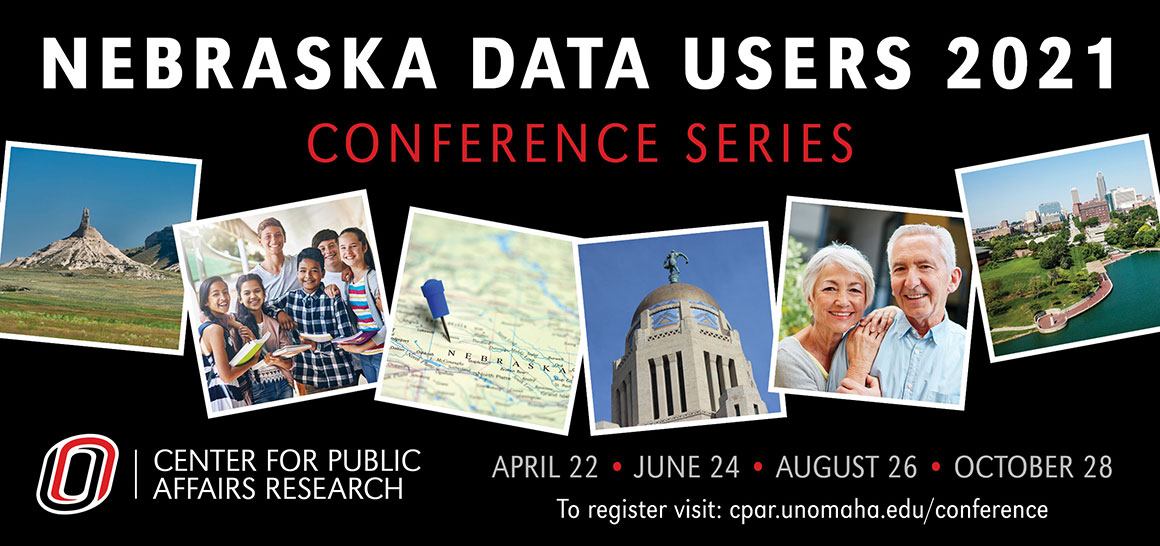June 24, 2021
Understanding Vulnerable Populations: An Exploration of Data Sources and Research Methods
Three sessions will examine vulnerable populations and the data available to explore these groups and trends about them.
Human Mobility
Human mobility, in its different manifestations — international and domestic migration; refugees, asylum seekers, and displaced populations; and human trafficking — is at the center of many political and public debates. In two research presentations by UNO faculty, the demographics of highly mobile populations will be explored as well as the impacts of mobility on communities in Nebraska.
Women and the Economy
Nationally, and in Nebraska, a persistent gender, racial, and ethnic wage gap exists. This session will explore women’s earnings, spending habits, and financial knowledge to understand their critical role in the economy.
Aging
A large aging population, like here in Nebraska, has an impact on a variety of public policies and facets of life for all ages. Two Nebraska researchers will introduce a variety of data sources and resources on aging adults, review gaps in knowledge about this population, and share efforts to build a stronger evidence base about the policy impacts of aging.
|
